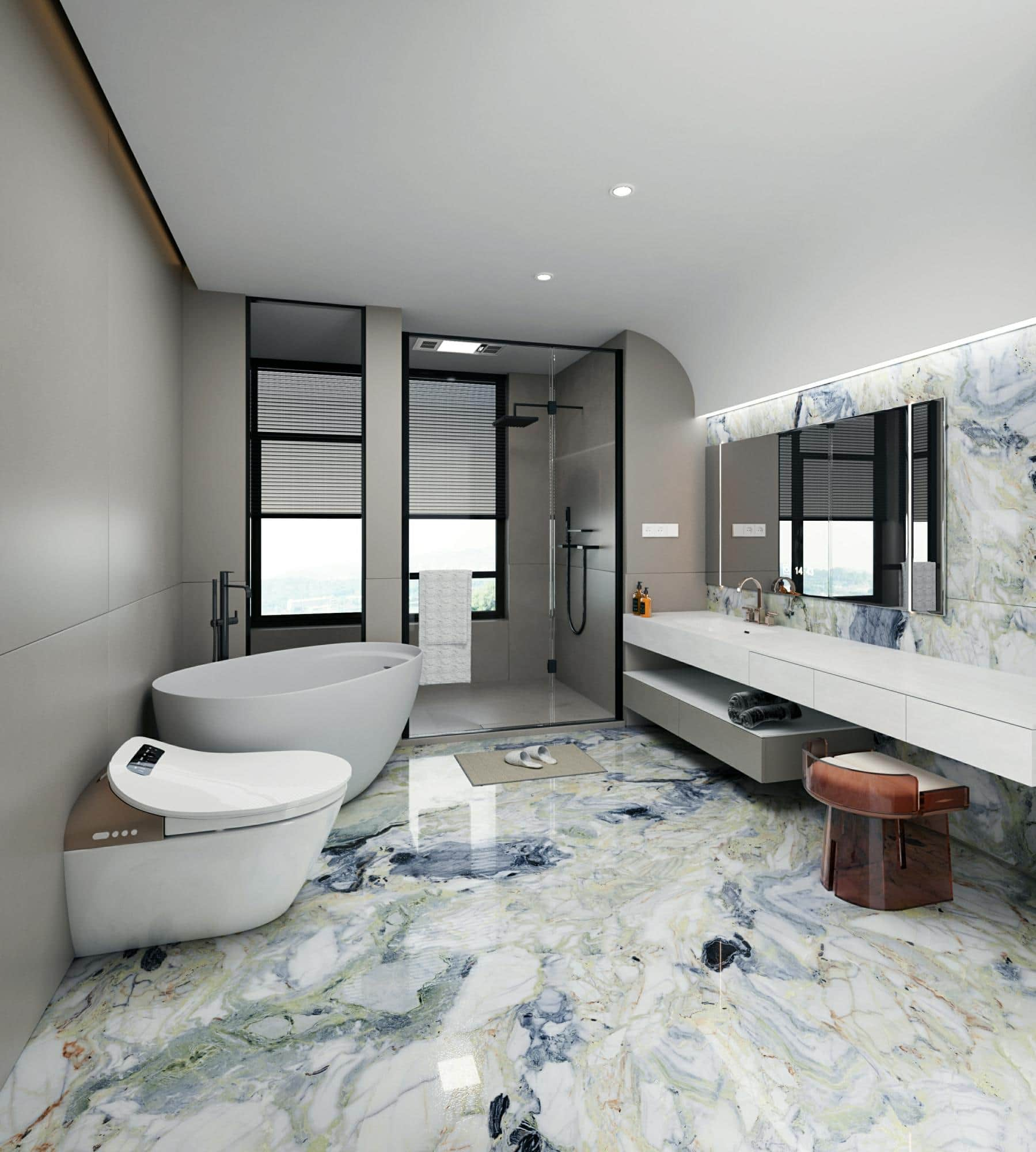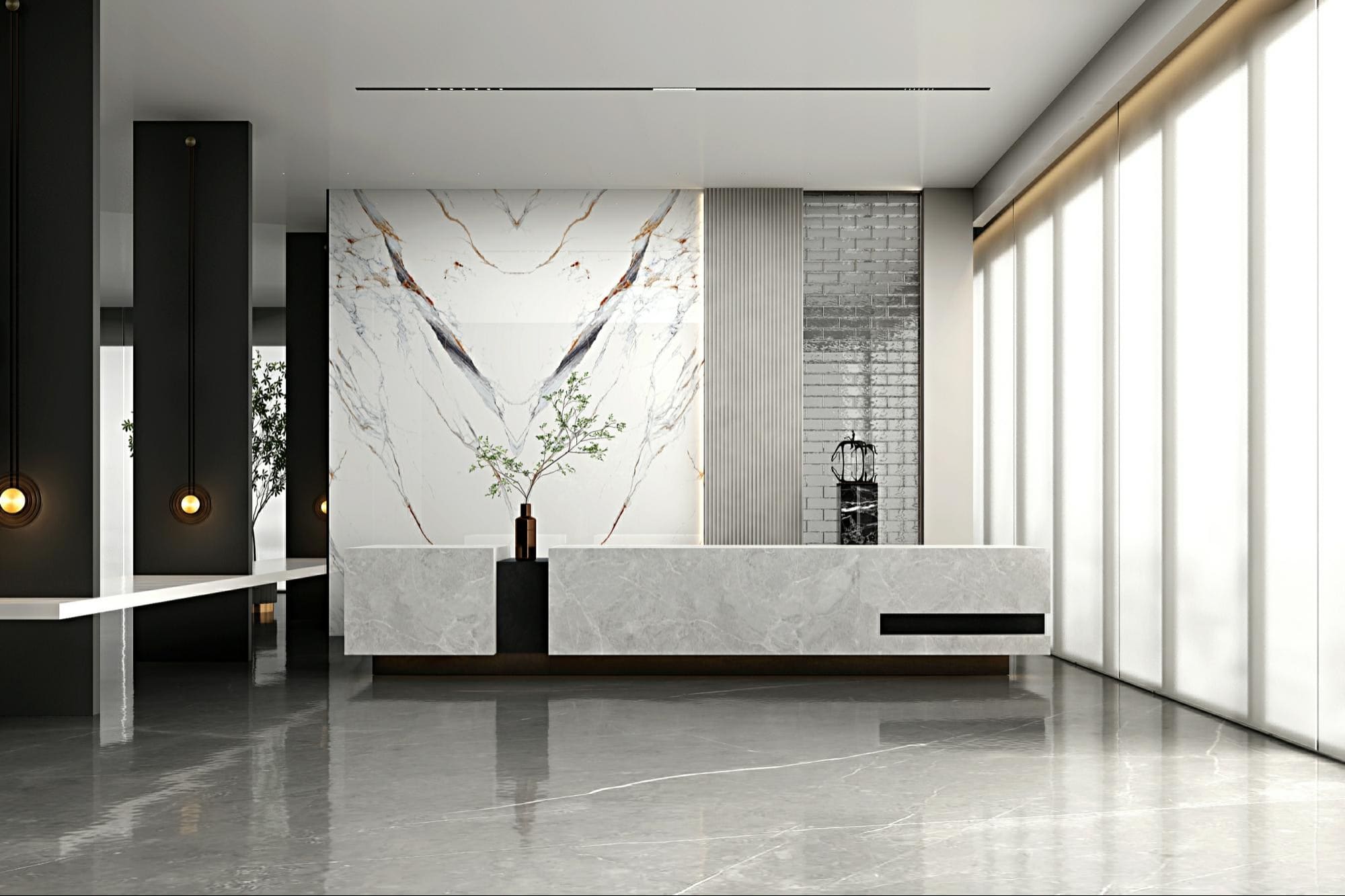Sintered stone is a new type of material made by ultra-high temperature sintering. It is widely used in TV background walls, kitchen countertops, bathrooms and other fields. The production process of sintered stone includes several key steps, and each step needs to be precisely controlled.
1. Choose the right raw materials
The production of sintered stone begins with the selection of raw materials, usually natural ores, clay and other raw materials. These raw materials are carefully selected to ensure good physical properties such as hardness, wear resistance and heat resistance. In order to meet the needs of different customers, different pigments are also added to create unique color effects.

2. Batching and mixing
The raw materials are proportioned in a certain proportion and mixed by automated equipment. When batching, some special additives such as plasticizers or anti-fouling agents are also added to improve processing performance and long-term use.
3. Pressing and molding
The mixed raw materials will be pressed into the shape of plates or bricks by high-pressure equipment. During the pressing process, the raw materials are tightly combined under high pressure to form a dense material structure. This step ensures the high strength and good impact resistance of the sintered stone. The design of the mold also provides sintered stone products of different sizes and shapes according to market demand.
4. Sintering process
The pressed raw materials are sintered at a high temperature of about 1300℃, and the minerals in the raw materials react chemically to form a strong and durable material structure. The sintering temperature and time of the sintered stone must be controlled very accurately to ensure that the hardness and glossiness of the final product meet the established requirements.

5. Cooling and post-processing
After sintering, the sintered stone needs to be cooled slowly to avoid cracks or deformation due to temperature changes. After cooling, the sintered stone will be cut, ground and polished to improve its surface smoothness.
6. Inspection and packaging
Finally, the batch of sintered stones will be sampled to check whether their size is correct and whether the gloss is sufficient. Finally, the sintered stones are packaged and sent all over the world.

Through the fine production process, sintered stones have the advantages of high hardness, high temperature resistance, and strong stain resistance. They are widely used in modern architecture and home decoration, meeting people's dual needs for beauty and durability.